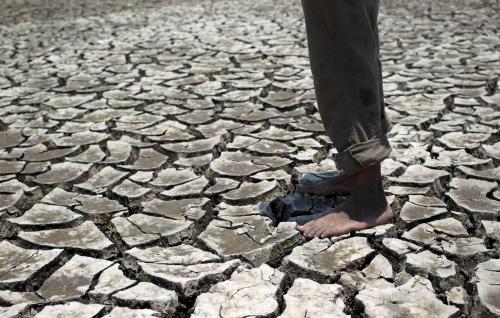As power shifts to a Republican-dominated Congress after Tuesday’s election, questions continue to surround the prospects for federal immigration reform. Will partisan gridlock and ideological polarization continue to stall much needed reforms or will an undivided Congress create a bill that President Obama can sign into law?
Notwithstanding the changing political climate at the federal level, immigration is really a local development issue. America’s state and city leaders continue to feel the economic impacts of immigration, both the benefits and challenges, as their hands are tied by stalled federal reforms. Local businesses, schools, and governments are the ones who employ and provide services directly to immigrants.
Many scholars agree that the U.S. economy benefits from the presence of high-skilled foreign workers. However, considerable debate exists over a potential skills shortage and possible negative impacts of immigration on native-born workers in the U.S. labor market. While many of these debates focus on national-level analyses, they should also consider local variations. As my previous research suggests, regional labor markets vary in their demand for high-skilled foreign workers.
Some aspects of the debate focus on the potential value of retaining American-trained foreign students, especially those graduating from our top colleges and universities. As my research on foreign students illustrates, the majority of these students studying in the United States come from large fast-growing cities abroad. They are a potential major source of high-skilled labor for local markets, and could help American companies connect to these large markets abroad.
Immigration is also a global development issue. Immigrants are economic ambassadors that link America’s local economies with global cities. Their local knowledge coupled with their economic, social, and political networks contribute to the growth of both economies simultaneously. The World Bank estimates that global remittances—the money sent home by migrants—totaled roughly $435 billion in 2014. The largest share of these financial flows go to poorer communities in developing nations, helping to alleviate poverty.
What is the impact of U.S. immigration on the rest of the world? What is the influence of high-skilled immigration on America’s regional economies? How does the demand for high-skilled immigrants vary within the United States? Do remittances actually help home communities abroad?
I’m looking forward to exploring these and other questions today as part of a new bipartisan public forum—the Dreier Roundtable—at Claremont McKenna College, with Giovanni Peri of the University of California, Davis and Tim Kane of The Hoover Institution at the Roundtable’s Economics Panel at 8:30 am PT. Also, please tune in to a live webcast of the Dreier Roundtable discussion featuring David Dreier, William Antholis, Jacob Goldstein, Mike Murphy and Peter Skerry.



Commentary
New Climate for Immigration Reform?
November 7, 2014